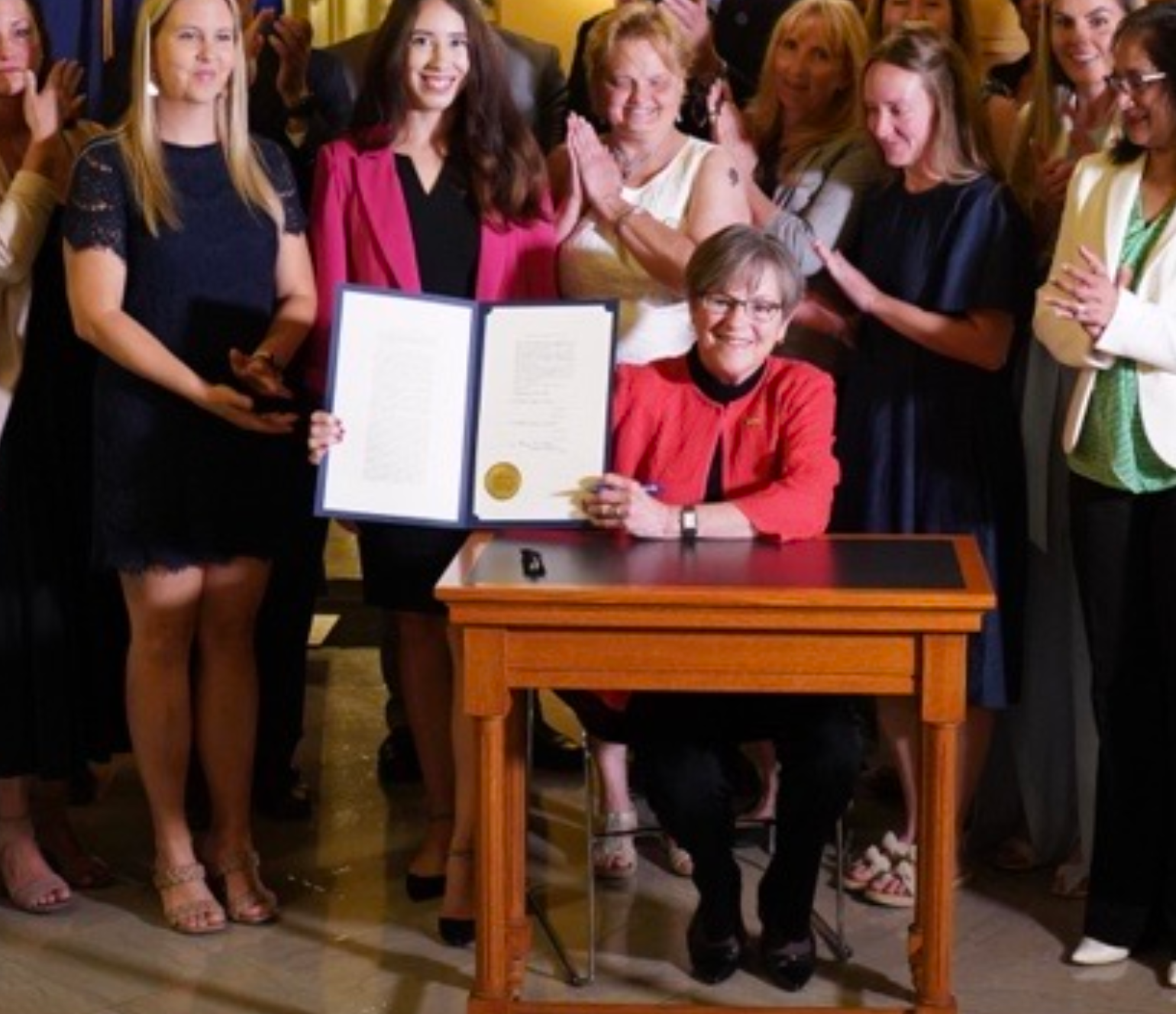
By TIM CARPENTER
Kansas Reflector
TOPEKA — Gov. Laura Kelly joined activists and legislators Thursday who reflected on a four-year journey to adoption of a Kansas law ending the statute of limitations on criminal prosecution for alleged child sexual abuse and extending opportunity to file lawsuits in those cases.
The legislation had been discussed off and on for years before Senate Substitute for House Bill 2127 gained traction during the 2023 session and was unanimously passed 120-0 in the House and 40-0 by the Senate. Kelly executed a ceremonial signing of the bill in the Capitol rotunda, which followed official signing of the legislation in April.
“It goes to show this is an issue that transcends partisan politics,” Kelly said. “This will help get child predators off the streets, make our communities safer and protect other children from becoming victims.”
Senate President Ty Masterson, a Republican from Andover, said negotiations led to a bill that struck the right balance within the legal system.
“It was time to create some openings. It was about bringing help to the victims,” he said.
Under the new Kansas law, criminal prosecution for sexual abuse of a person under 18 years of age could occur at any time. A statute of limitations would no longer apply, which would bring those crimes in line with cases of murder, terrorism or rape.
The reform bill also extended the timeframe for filing civil actions to recover damages. Going forward a lawsuit could be brought within 13 years of a victim’s 18th birthday or no more than three years after the date of a criminal conviction for a crime related to the alleged abuse.
Under the old Kansas law, civil actions had to be filed within three years of the victim turning 18 or no more than three years after the person could have reasonably discovered injury or illness was caused by sexual abuse.
Sen. Cindy Holscher, D-Overland Park, said she appreciated the commitment of lawmakers and victims of childhood trauma who wouldn’t give up on creating change.
“It has been a tough and long-fought battle,” Holsher said. “I would say there are a lot of people to thank for getting us to this important day. This is how the legislative process is supposed to work. Not outside interests for companies with six-figure lobbyists before the people. This has been one of the purest grassroots efforts and it gives me great hope for the future of our state.”
Questions were raised by House and Senate members about the capacity of law enforcement to investigate incidents that purportedly transpired years earlier. Some lawmakers were wary of the bill’s financial implications for the Catholic church and other organizations. There were discussions among legislators about potential of individuals to level false allegations.
Rep. Mark Schreiber, R-Emporia, said it was heartening to see a group of first-year legislators bring expertise and experience to the debate. He lauded the steady presence at the Capitol of a coalition of women victims who personalized the issue.
“The combined force of all these legislators was no match for the commitment and courage exhibited by the survivors who showed up each week at the Capitol here to push for this legislation,” he said.




